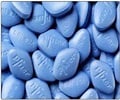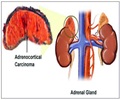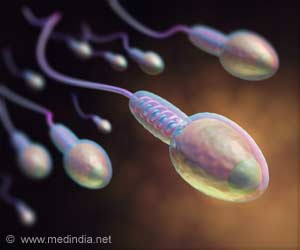Men with low libido may soon be able to derive benefits from testosterone therapy, as many international organisations have updated their guidelines regarding the use of supplements of this hormone.
Many international organisations have updated their guidelines regarding the use of supplements of testosterone, thus clearing the way for its use in men with low libido.
The International Association for the Study of the Aging Male, the International Society of Andrology, the European Association of Urology, and the American Society of Andrology did so taking into account recent findings that testosterone supplements can be helpful in treating conditions linked with male ageing like tiredness, depression, and lack of libido.Recent studies have also suggested that the effects of an age-related lack of testosterone may go beyond feeling a bit tired, with type 2 diabetes, obesity and cardiovascular disease appearing to be linked with it.
"Age-related declines in testosterone are real. If a man has signs of hypogonadism then treatment should be considered," New Scientist magazine quoted Adrian Dobs of Johns Hopkins University in Baltimore, Maryland, as saying.
Another reason for updating the guidelines on who to screen for testosterone deficiency and how to treat it lies in the results of some studies that suggest that some of the fears about testosterone supplements increasing the risk of prostate cancer may have been unfounded.
The new guidelines recommend measuring testosterone in all men who have both type 2 diabetes and symptoms of testosterone deficiency, and in those with erectile dysfunction or low libido.
"This is a major change. That puts a lot of people in the category of being screened for low testosterone," says Andre Araujo, director of epidemiology at the New England Research Institutes in Watertown, Massachusetts.
Advertisement
The guidelines say that there is no conclusive evidence that testosterone therapy increases the risk of contracting prostate cancer, or converts subclinical cancer into a detectable disease.
"There has been a major pendulum swing regarding the use of testosterone therapy in men who have been successfully treated for prostate cancer," says Andre Araujo of the New England Research Institutes in Watertown, Massachusetts.
The experts, however, warned against using testosterone supplements as a substitute for weight loss, healthy eating or conventional diabetes drugs, especially because treating the causes of the underlying disease might cause testosterone to rise back to normal on its own.
They said that testosterone replacement could lead to an increase in the number of red blood cells, a condition known as polycythemia, which increases the risk of stroke or blood clots.
They also agreed that larger studies were needed to confirm that treating low testosterone, even in people with symptoms, could result in a better quality of life.
"There are many clinicians who are treating many men with testosterone replacement and the men feel better. But for many years we treated women with oestrogen with the idea that it was good for women, and as we now know, the clinical trials have not supported that belief.
So we need bigger trials," says Gail Laughlin at the University of California, San Diego, who led one of the studies linking low testosterone to early mortality.
Source-ANI
RAS/L













